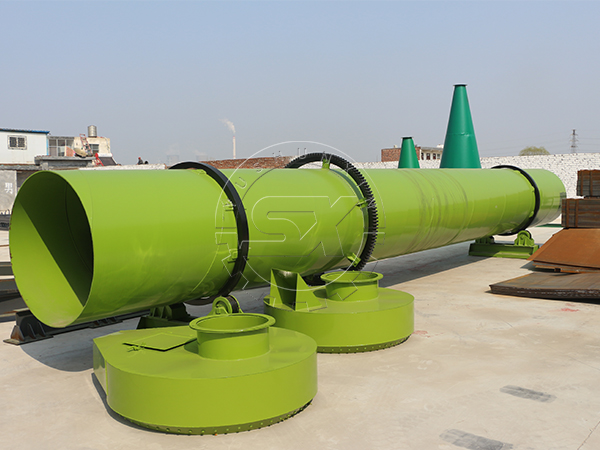Three methods of removing water from fertilizer in the organic fertilizer production line
In the process of organic fertilizer production, the requirements for moisture in different process stages are different. There are four stages to remove water. The first one is livestock manure with a water content higher than 60%-65%. Second is the processed water content of 40%-65% before the fermentation. And the third is the granulation of powdered fertilizer with a water content of 20%-40%. Fourth, drying is to dewater the finished products with a moisture content of less than 15%.
For animal wastes with high water content such as pig manure, the water content is often as high as 60% to 70% (above 65%). At this time, a dehydrator is generally used for mechanical dehydration. The mechanical dehydration method can only remove part of the free water in the material, and the combined water remains in the material.

After the material is dehydrated, the moisture content of the material is still very high, generally 40%-60%. This water content is removed in the fermentation process by using organic fertilizer fermentation equipment. After a series of ventilation, oxygen supplementation, heating and cooling repeated processes the water content of the material will be 20%-40%, which is more suitable for organic fertilizer granulation.
In the organic fertilizer production line, the fermented and decomposed materials can be granulated with a water content of 20%-40% through the crushing and mixing process. However, the water content of the processed particles is still high, so in most cases, it is required after granulation drying with organic fertilizer dryer. After drying and cooling process, the moisture content of the particles reaches the standard that is less than 10% of the moisture content.

